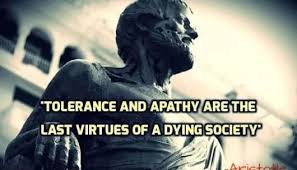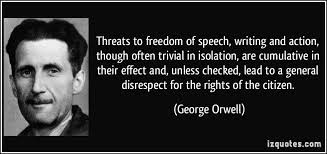I gave my presentation on Tuesday which, as anything related to the history of economics, remained at the low end of interest. Even the promise to explain for the first time in eighty years how classical economists looked at the operation of an economy had only a few takers. But I am happy that four of those were Catallaxians who made it a much more festive occasion for me. But numbers aside, it was a very useful presentation for the presenter who learned quite a lot from the conversation.
1. There is a pile of context that must go into any such presentation. It is not just that I am presenting some contraption from a far distant past, but that this contraption of mine has been able to pick every turning point in the economy since 1982. My favourite example before this the latest catastrophe post-GFC, was to argue that Peter Costello’s massive cuts to spending in 1996 would lift the economy into recovery. Definitely not textbook economics, and I can say that hardly anyone anywhere thought it would work. But as the Chief Economist of the Australian Chamber of Commerce and Industry, I wrote the press release in the lock up, and we ended up the only organisation in the country that backed the spending cuts to the hilt, which is something that Treasury itself never did. My virtual certainty that the cuts in ’96 and ’97 would succeed was followed by the explosive growth we had in 1998, even the midst of the Asian Financial Crisis. After it had all worked out, I heard no end of explanations for what had happened from people who really then, or now, have no idea whatsoever. Go on, you Keynesians, tell us how massive cuts to spending in the middle of an international recession will turn an economy around. And if it worked then, why don’t we try it now?
2. The other bit of context, and possibly more important in the present, is that I knew right from the beginning without any hesitation that the stimulus following the GFC would end up a disaster. You can say that lots of people opposed the stimulus but they did it on general principles in backing small government. What you didn’t hear then is that the “stimulus” would ruin our economies, just as you do not hear even now anyone blaming the dismal growth across the world on the public spending program. We discuss debt and deficits, as if that is the nature of the problem, but that’s not it at all. Here I will only remind you of what I wrote in February 2009 in an article published in Quadrant under the heading: The Dangerous Return to Keynesian Economics:
“Just as the causes of this downturn cannot be charted through a Keynesian demand-deficiency model, neither can the solution. The world’s economies are not suffering from a lack of demand, and the right policy response is not a demand stimulus. Increased public sector spending will only add to the market confusions that already exist.
“What is potentially catastrophic would be to try to spend our way to recovery. The recession that will follow will be deep, prolonged and potentially take years to overcome.”
We can quibble about the definition of “recession” if you like, but I am old school and think of it as an extended period of subdued rates of growth coupled with high unemployment [a depression is an out and out plunge in activity with large-scale increases in unemployment]. This is seven years later and there has not been an upturn of any serious kind in any economy anywhere in the world. We are definitely into the territory of deep and prolonged, and there is no longer any question that whatever has gone wrong will “potentially take years to overcome” since we are already many years into this recession with no recovery in sight. And if there are many out there who have been explaining this as a result of the stimulus based on non-value-adding expenditures, I have managed to miss it. In my view, it is only if you have an entirely classically-based supply-side model of the economy that you can see what has been happening.
3. No one knows what Keynes wrote. Everyone thinks economic theory has transcended Keynes. The General Theory has gone beyond being a classic. Literally no economist reads it. Partly because it is so embarrassing. Partly because there is nothing there to learn. And partly because in economics, if it’s more than a decade old, the assumption is that everything of value has been absorbed into the general run of ideas so there is not much point in going back. Yet, as I pointed out, the very words “aggregate demand” were introduced into economic theory at the same time as economics universally rejected “Say’s Law” on Keynes’s say so. Say’s Law, of course, was specifically designed to explain why demand deficiency never caused recessions: in the words of the classics, “there is no such thing as a general glut”, an excess supply of everything at once. But for me, it is still astonishing how easy it is to refute this bit of Keynesian rhetoric:
We must now define the third category of unemployment, namely ‘involuntary’ unemployment in the strict sense, the possibility of which the classical theory does not admit. [GT: 15]
Those classical blockheads! According to Keynes, every economist before him, the untold tens of thousands of economic writers and observers, who had lived through generations of recessions and catastrophic periods of job loss, nevertheless did not actually accept the existence of mass unemployment, that people were unemployed involuntarily. It is pretty easy to show this is either ignorance or deceit. But whichever it is, few any longer seem to know that is what Keynes had argued and how important it was to get his theory established. Since I had been “educated” in Keynesian theory, the entire story of how Keynes had single-handedly overturned Say’s Law, and had shown that involuntary unemployment was possible in the face of the opposition of his predecessors, remains a living part of what I was expected to know. So when I see how obviously untrue it is, I remain to this day amazed at how he was able to insert this into our view of the world. But does anyone else of a younger generation know or care? They don’t, not at all. And of course it really doesn’t matter since it never occurs to anyone that perhaps the pre-Keynesian knew something they don’t that would be worth knowing today.
4. But possibly the most important thing I learned is how difficult it is to understand classical theory. If I have you in class for a semester, you have a chance to understand it. If I have you for an hour, there is just too much. Even though it seems crystal clear to me, I have been wrestling with it for 35 years. Even if I can synthesise it into a few diagrams, it is just not possible. If you think in terms of aggregate demand, you cannot just let it fall away. If you think of saving as the difference between income and consumption, you are never going to make instant sense of John Stuart Mill. In a sense, what I was saying was to take everything you understand about how economies work and then forget it and adopt something else instead.
5. But also of interest was the argument that was brought up that everything I am saying is said by Austrian economists. So at least to that extent what I said has some kind of validity, except that it is all said by others already. Except that it’s not. The Austrians are notable for their role in the Marginal Revolution in the 1870s, which created the break with the classical tradition. Their focus then, and still largely today, was on Marxists and the Labour Theory of Value. I am well aware of how similar to the classicals Austrians are when you put them against a background of the current mainstream, but there are wide differences that really matter. The most important, as I look at it, is the Austrian emphasis on marginal utility, which focuses the theory of value onto the demand side of the economy. Demand drives Austrian theory, which already makes an economist less stridently opposed to Keynesian demand-side macro. Except that Austrian theory is also relentlessly microeconomic, so that the essentially macro approach of classical theory almost entirely disappears. And going further, Austrians retain, sort of, the role of the entrepreneur, but even here it is mostly for innovation, and not just to explain how a bakery keeps running year after year in spite of the many upheavals going on around it on almost a daily basis for which there is a constant need for decisions to be made.
6. Classical theory is a different world. If you are to understand why the stimulus has been a disaster, or why Venezuelans are now living in poverty, it is to classical theory – supply-side economics – you must go. This post is titled, “Is National Saving a Stock or a Flow?” In modern theory, it is a flow. In classical, it is a stock. It is all the difference in the world whether it is seen as one or the other. And that is only where the differences between classical and modern theory starts. But at least I now have more clarity about what I need to do to explain classical theory to others.




